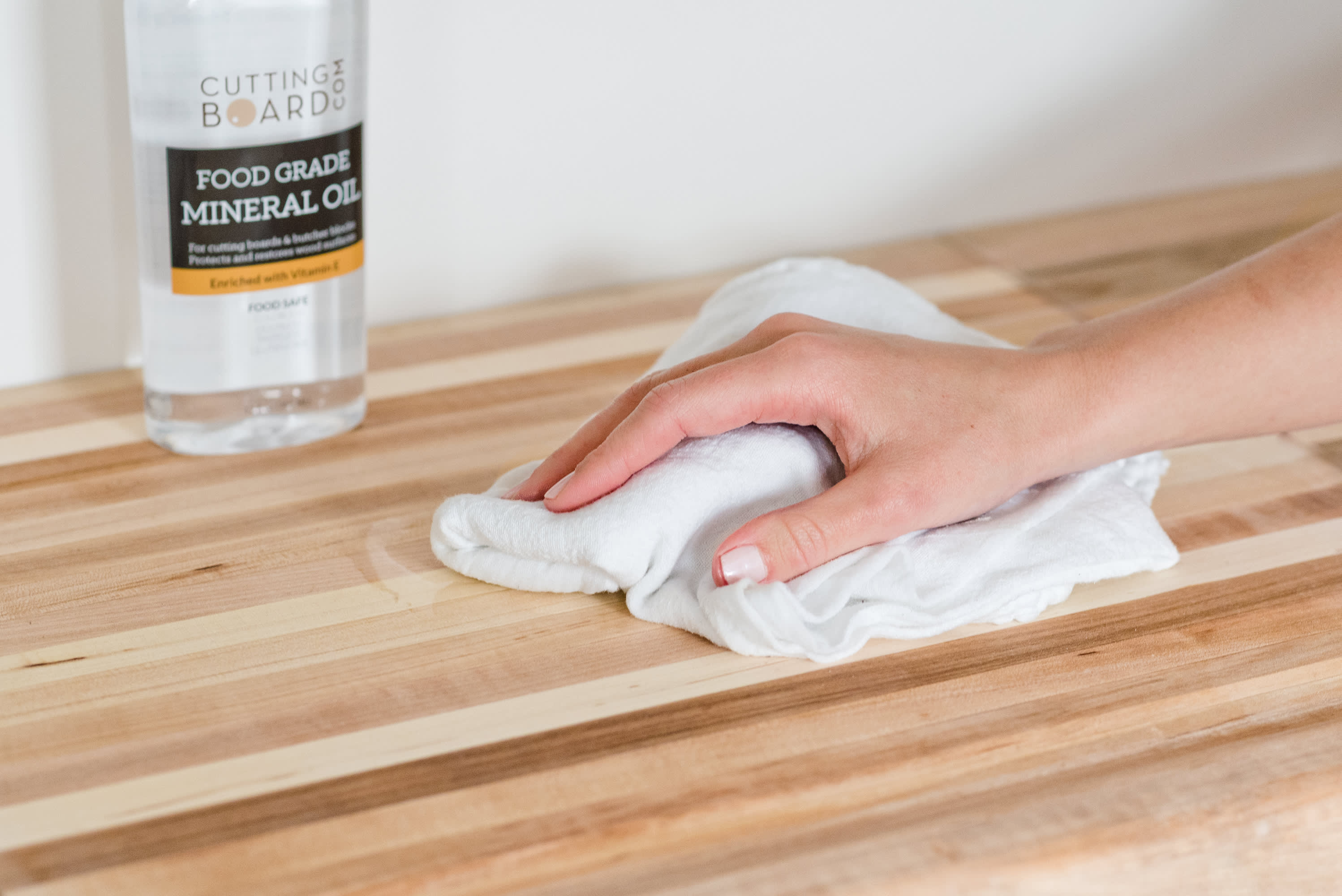Mineral oil on a butcher block countertop is a time-tested method for enhancing and maintaining the beauty of the wood. Butcher block countertops, often made from hardwoods like maple, walnut, or cherry, are a popular choice for kitchens due to their warmth and durability. Mineral oil serves as a nourishing agent for the wood, helping to prevent it from drying out and cracking over time. Let’s explore the various aspects of using mineral oil on a butcher block countertop, from its application and benefits to considerations for maintenance and alternative options.
Applying mineral oil to a butcher block countertop is a straightforward process. Begin by ensuring that the surface is clean and dry. Then, liberally apply the mineral oil using a soft cloth or a brush, allowing the wood to absorb the oil. It’s essential to focus on areas that may be more prone to drying, such as the ends and edges of the countertop. Repeat this process until the wood is saturated and does not absorb any more oil. Allow the oil to penetrate the wood for several hours or overnight before wiping away any excess.
One of the primary benefits of using mineral oil on a butcher block countertop is its ability to penetrate the wood and create a protective barrier. This barrier helps to repel water, preventing the wood from swelling or warping when exposed to moisture. Additionally, mineral oil enhances the natural color and grain of the wood, bringing out its inherent beauty and providing a warm and inviting appearance to the kitchen.
Maintaining a butcher block countertop with mineral oil is a key factor in prolonging its life and maintaining its aesthetic appeal. Regular applications of mineral oil, especially in dry climates or environments with low humidity, help prevent the wood from becoming brittle and prone to cracks. It’s recommended to apply mineral oil every few weeks or as needed, depending on the usage and exposure to moisture.
While mineral oil is a popular choice for butcher block countertops, there are alternative options for those who may be concerned about potential allergies or prefer plant-based products. Beeswax and carnauba wax blends are often used as alternatives to mineral oil. These products provide a similar protective barrier while adding a subtle sheen to the wood. Some homeowners also opt for specialized butcher block conditioners that combine mineral oil with natural waxes for comprehensive care.
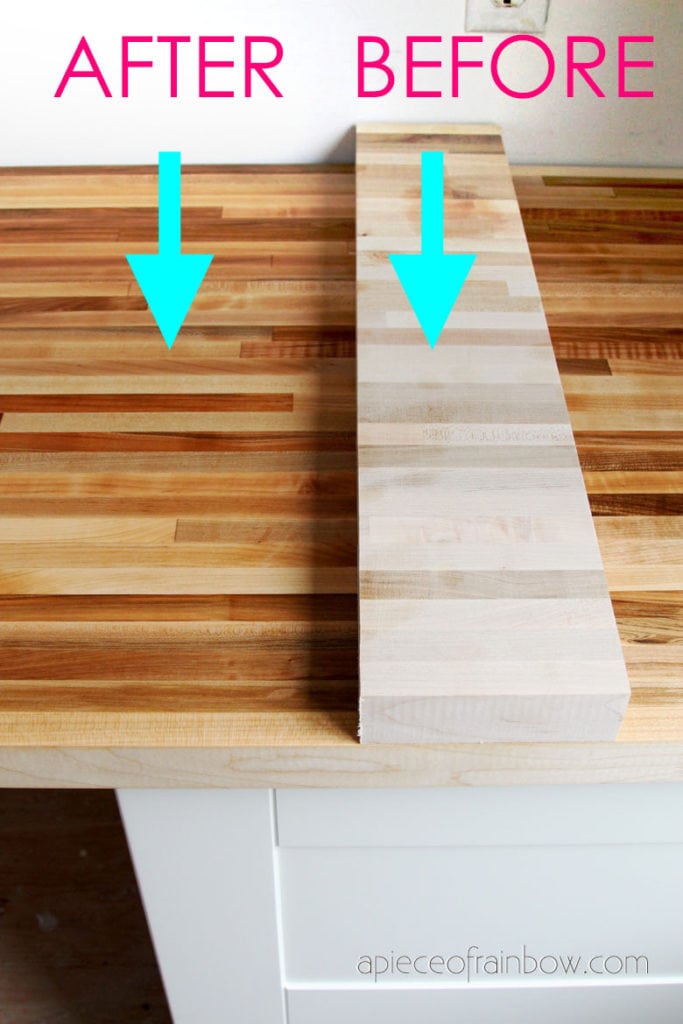
Mineral oil on a butcher block countertop is particularly effective in preventing the growth of bacteria and fungi. Wood has natural antibacterial properties, and the mineral oil helps to seal the pores of the wood, reducing the likelihood of bacteria or mold thriving on the surface. This makes butcher block countertops a hygienic choice for food preparation areas.
Despite its benefits, it’s essential to be mindful of overapplication of mineral oil. Too much oil can lead to a sticky or tacky surface, as the wood may not absorb the excess oil. If this occurs, it’s advisable to wipe away the excess oil with a clean, dry cloth. Finding the right balance in oil application is key to maintaining a smooth and lustrous surface on the butcher block countertop.
Mineral oil is a food-grade substance, making it safe for use in the kitchen. Unlike some other wood treatments that may contain chemicals, mineral oil is a neutral and inert material that won’t impart any unwanted flavors or odors to food prepared on the countertop. This food-safe quality is especially crucial for those who enjoy cooking and chopping directly on the butcher block surface.
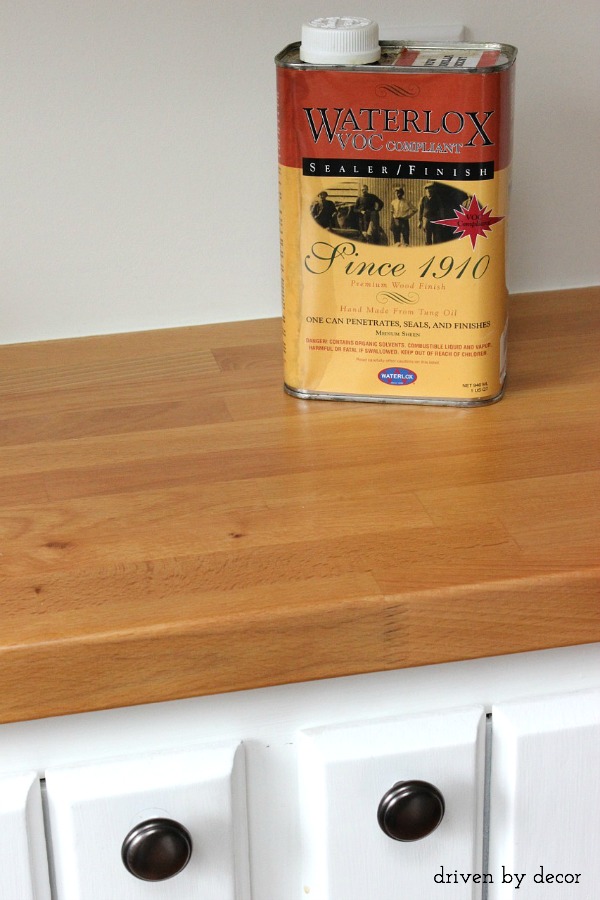
Over time, the application of mineral oil contributes to the development of a rich patina on the butcher block countertop. This patina adds character and depth to the wood, showcasing the countertop’s history and the natural aging process. Many homeowners appreciate the evolving appearance of their butcher block countertops, as it reflects the years of use and care invested in the kitchen.
When choosing mineral oil for a butcher block countertop, it’s essential to select a product that is labeled as food-grade or pharmaceutical-grade. These designations ensure that the mineral oil is free from impurities or additives that could potentially harm the wood or compromise its food-safe status. Reading product labels and choosing high-quality mineral oil is a prudent step in maintaining the integrity of the butcher block countertop.
While mineral oil is an excellent choice for regular maintenance, it may not provide a permanent solution for deep scratches or stains. In such cases, homeowners can consider sanding the affected area and then reapplying mineral oil to restore the uniform appearance of the countertop. This process can help address minor imperfections and maintain the overall beauty of the butcher block.
Mineral oil on a butcher block countertop aligns with the principles of sustainable and eco-friendly kitchen practices. By choosing a natural, renewable resource like wood and treating it with a simple, non-toxic substance like mineral oil, homeowners contribute to a more environmentally conscious living space. This sustainable approach resonates with those who prioritize green living and seek to minimize their ecological footprint.
The frequency of mineral oil application may vary depending on factors such as the type of wood, climate, and usage patterns. It’s advisable to observe the condition of the butcher block countertop regularly and apply mineral oil as needed. This proactive approach ensures that the wood remains well-nourished and protected against the rigors of daily use.
Images Related to Mineral Oil On Butcher Block Countertop
How To Oil Butcher Block Countertops Kitchn
Using mineral oil on a butcher block countertop is a time-honored practice that enhances the natural beauty of the wood while providing essential protection against moisture and bacteria. Regular applications of mineral oil, along with mindful maintenance practices, contribute to the longevity of the butcher block countertop and its role as a functional and aesthetically pleasing centerpiece in the kitchen. Whether you choose mineral oil or explore alternative options, caring for your butcher block countertop ensures its continued beauty and durability over the years.
The complete guide to maintaining butcher block countertops.
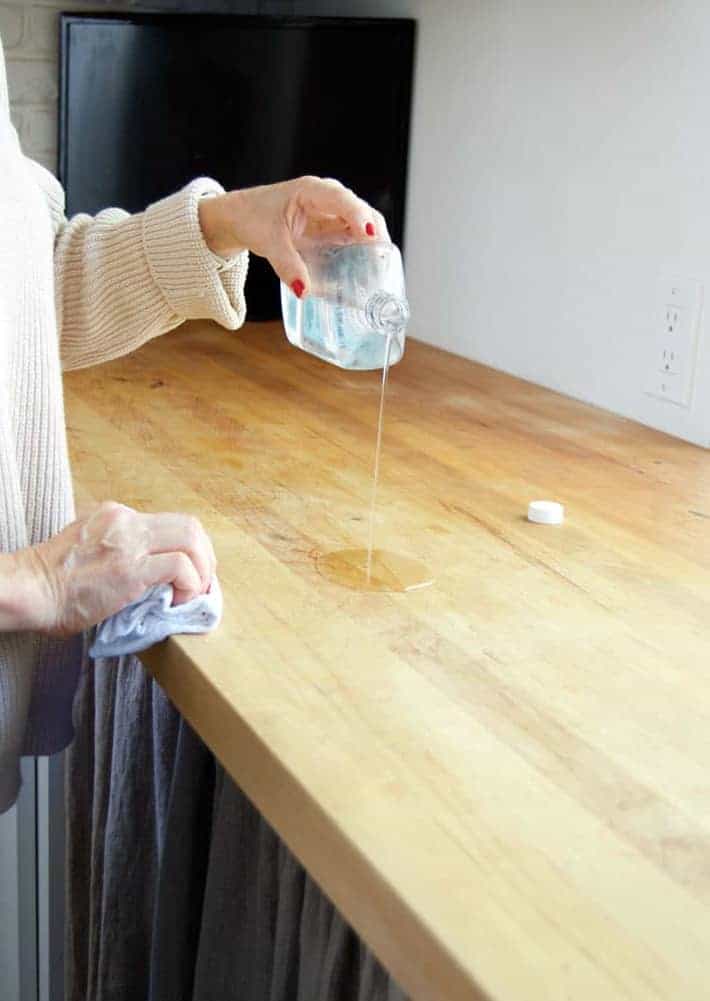
Butcher Block 101 – What to Know Before Choosing Butcher Block

The complete guide to maintaining butcher block countertops.
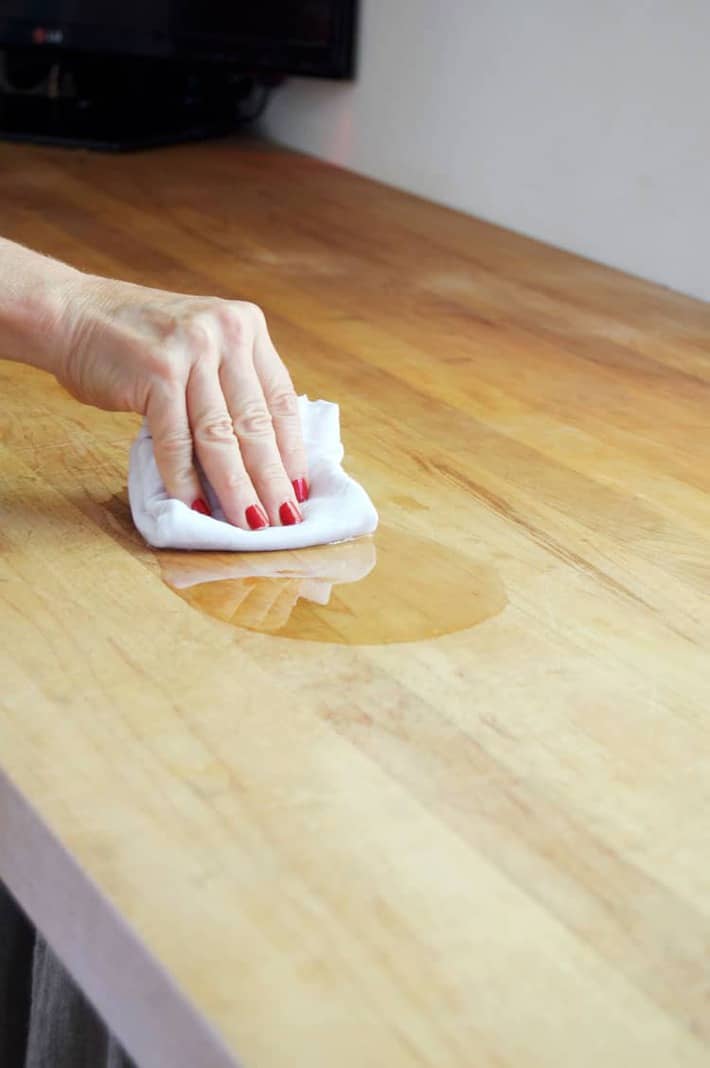
HOUSE*TWEAKING
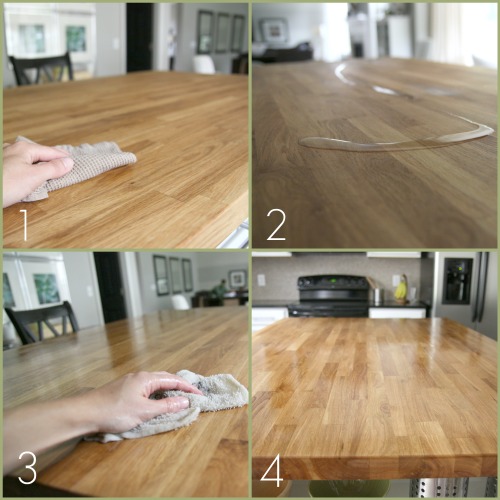
How to Make a Butcher Block Countertop Food Safe – Hardwood
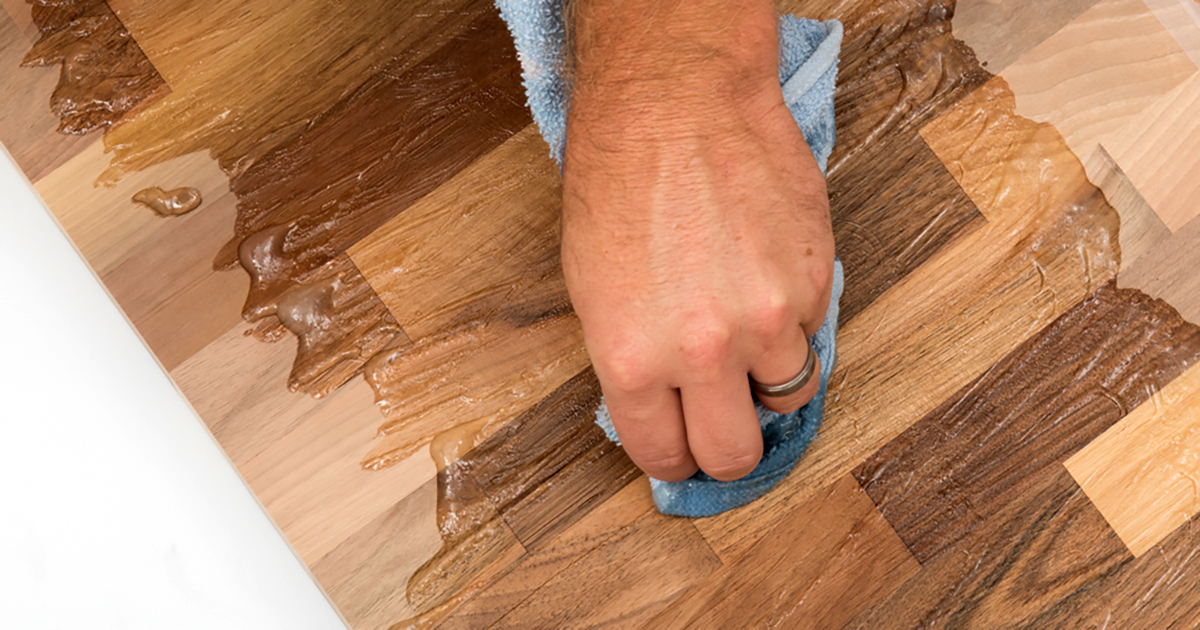
My Butcher Block Countertops and Mineral Oil got a divorce
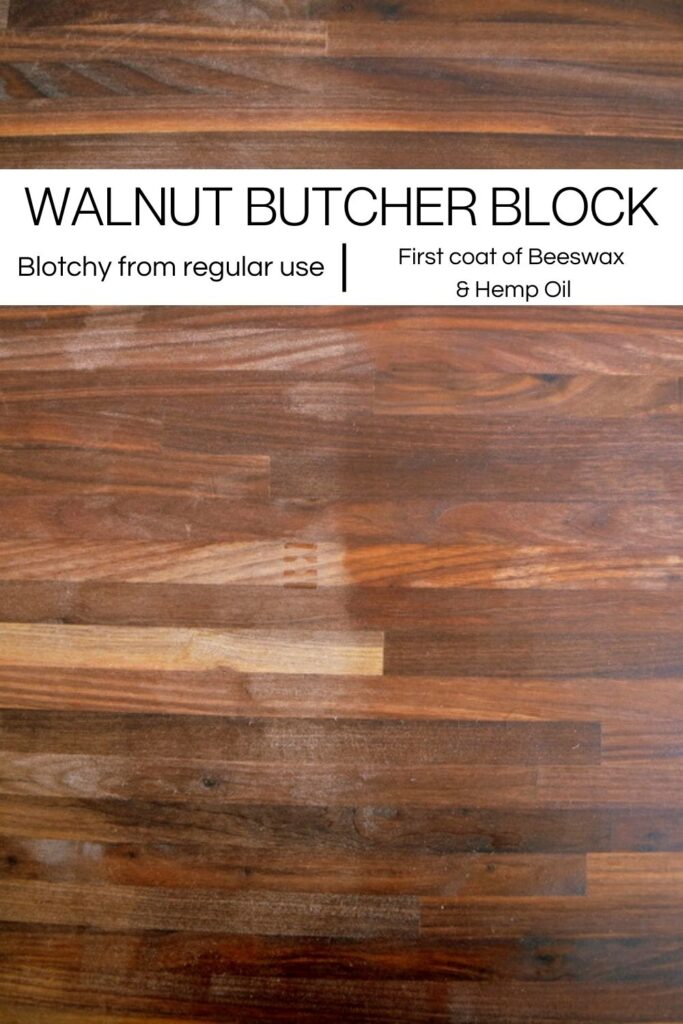
Adventures in Staining Butcher Block – What worked and what didnu0027t
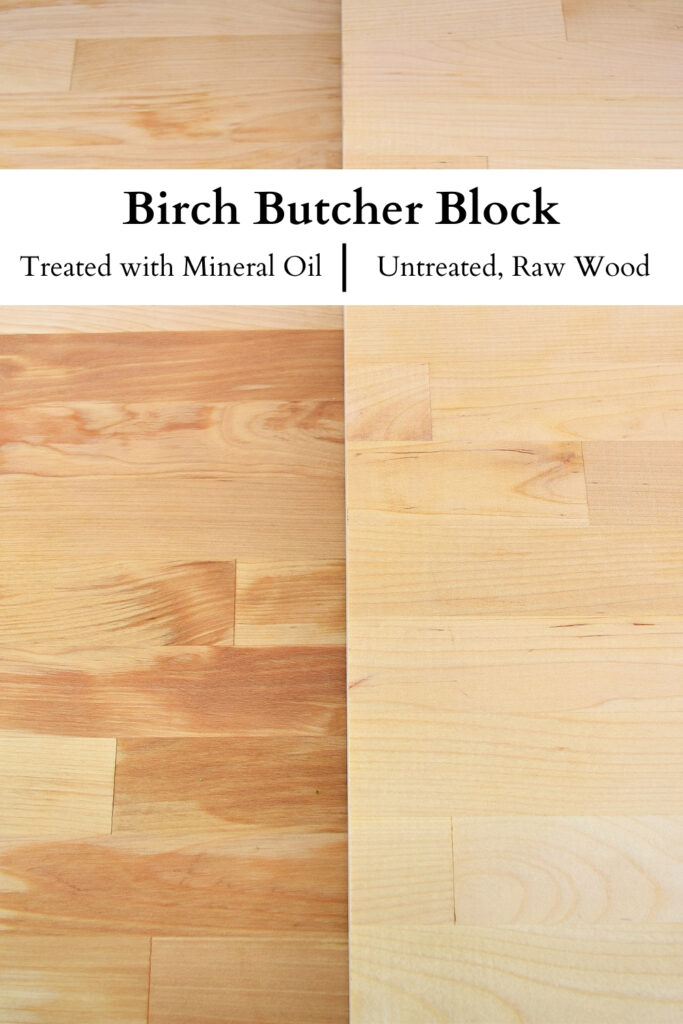
Related articles:
- Teak Butcher Block Countertops
- Order Butcher Block Countertops
- What To Seal Butcher Block Countertops With
- Types Of Butcher Block Countertops
- How To Make Your Own Butcher Block Countertop
- Polyurethane On Butcher Block Countertops
- How Much Are Butcher Block Countertops
- White Cabinets Butcher Block Countertops
- What Is The Best Wood For Butcher Block Countertops?
- Lumber Liquidators Butcher Block Countertop Review
